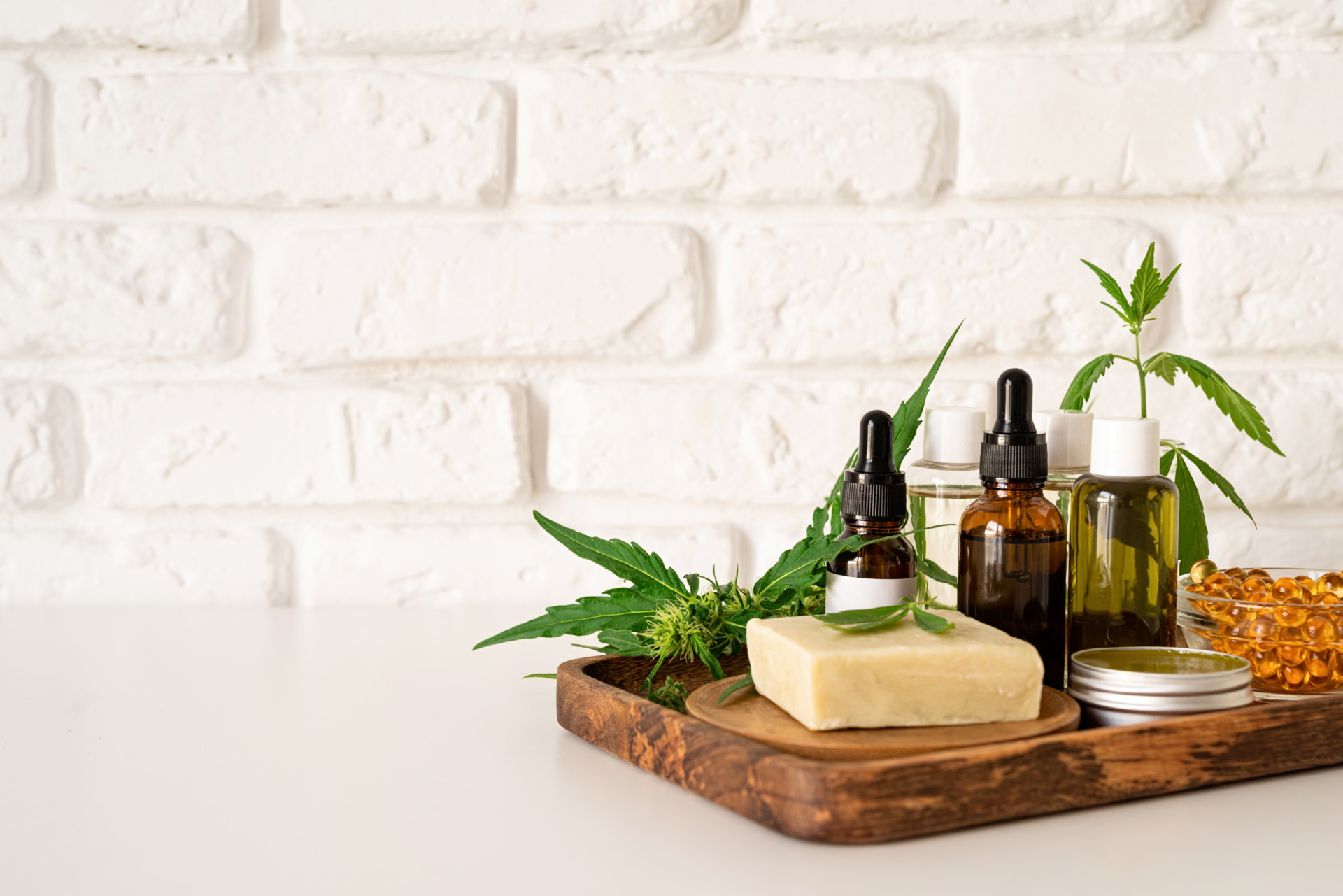Hemp has long had a reputation as the tamer cousin of cannabis, thanks to having a naturally lower content of delta-9 THC—the cannabinoid responsible for the famous cannabis “high.” But now, thanks to an unintended loophole in a little-known 2018 law, just about anyone can legally buy gummies, beverages and other hemp-derived products that contain THC. Read on to learn more.
Hemp-derived products containing THC are claiming a growing share of the cannabis and cannabis-adjacent marketplace. For many consumers, they’re cheaper and easier to obtain, with none of the stringent regulations of cannabis dispensaries. But that lack of regulation and easy availability can also pose risks. Here’s what you need to know now about the fast-growing, freewheeling world of hemp-derived THC products.
Cannabis, Hemp and THC: A Complicated Relationship
Both cannabis and hemp are both derived from the cannabis sativa plant, so both naturally contain delta-9 tetrahydrocannabinol (THC). And for decades, U.S. law made no distinction between the two. Because all cannabis contains THC, all types of cannabis were deemed illegal under the Controlled Substances Act of 1970, which put cannabis on its Schedule I list of highly addictive and dangerous drugs.
But in 1976, a curious distinction emerged, thanks to the work of a Canadian botanist named Ernest Small. To create what he called a “practical taxonomy” for explaining the biology of the cannabis plant, Small set the somewhat arbitrary amount of 0.3 percent THC content as a way to distinguish low-THC hemp from cannabis varieties containing more of this cannabinoid.
Small and his colleagues never intended their demarcation line of 0.3 percent to have legal weight. But their taxonomy created an entirely new category for the cannabis variant known as hemp, and that created a way around the strict laws treating cannabis as a dangerous, illegal drug. Now, for the first time, hemp could be recognized as distinct from cannabis, and its low-THC content meant that it didn’t need to be regulated under the Controlled Substances Act, since it wasn’t likely to get anyone high.
This new definition of hemp is at the center of loopholes and legal arguments that allow hemp-derived products containing THC to escape the tight regulations imposed on similar cannabis products.
Hemp-Derived THC Products Slip Through Legal Loopholes
Every few years, the US government issues an updated Farm Bill, designed to address issues related to agriculture, farming and food production. The Farm Bill of 2018 included a provision to help small farmers by allowing them to cultivate hemp legally not only for industrial uses, but also for commercial purposes of all kinds.
This provision used Small’s definition of hemp as containing no more than 0.3 percent of THC by dry weight to create the legal dividing line between hemp and cannabis—but the wording of “dry weight” created the loophole that lets today’s manufacturers make and sell hemp products with much more THC than that.
Because it was aimed at allowing farmers to make money cultivating hemp, the Farm Bill didn’t specifically address consumer products derived from hemp. For many of these products, “dry weight” is either not applicable or misleading.
And since the dry weight limit on THC applies to the hemp plant itself, for hemp-derived products containing many other ingredients, such as gummies, beverages or even topicals, the ratio of THC to dry hemp weight can be lower than 0.3 percent, but the actual amount of THC in the product can be much higher—even higher than in an equivalent cannabis-derived product.
The Journal of Cannabis Research offers this example: a 10g gummy can contain 0.03 g, or 30 mg of delta-9 THC and still be within legal limits, while a cannabis edible of the same size typically contains only 5 to 10 mg of delta-9 THC per serving.
Lack of Regulation Raises Concerns
Because hemp-derived THC products are technically legal, they can be produced and sold anywhere, even online. Because sellers require no, or at best minimal, age verification, anyone—even minors—can buy as many gummies, beverages or other products as they want, even if they live in states where cannabis is illegal or tightly regulated.
This situation has presented regulators with a conundrum. Although the cannabis industry is subject to tight regulations and consistent quality control for both medicinal and recreational cannabis products, those regulations don’t apply to hemp-based products. That means these products may not be tested for quality and THC content. In a recent study of hemp-derived THC products, researchers found that the THC content in more than half the products surveyed deviated from the stated dosage by 10 percent or more.
The rapid proliferation of legal hemp-derived THC products has also raised concerns among cannabis manufacturers, who worry that the easy availability of these products will take a substantial bite out of their profits and client base. The healthcare community is also concerned that cannabis users will bypass regulated dispensaries in favor of hemp-based products they can easily buy on their own. But so far, regulation of these products varies widely by state, and federal guidelines are minimal.
The Bottom Line About Hemp-Derived Products
Hemp-derived products containing THC are here to stay, and more are hitting the market all the time. In forms as varied as vapes, sodas and gummies, they can offer effects similar to equivalent cannabis products. But just because they’re legal doesn’t mean they’re safe—and it’s wise to read labels, look for reputable manufacturers and check THC content to ensure that you’re purchasing a product you can trust.






